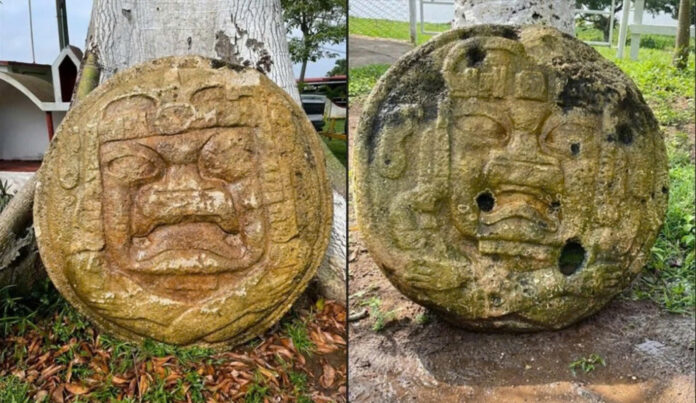Unearthing the Past: 2,500-Year-Old Olmec Reliefs Found in Tenosique
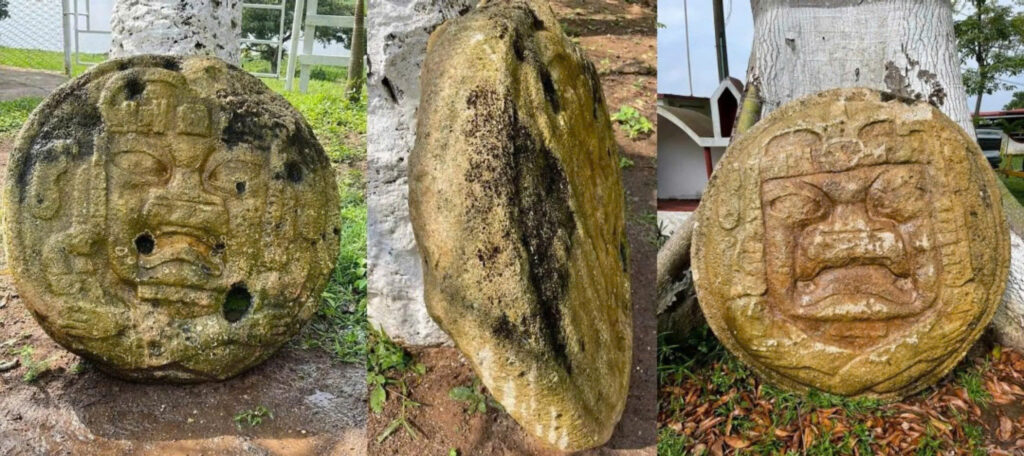
In a thrilling archaeological discovery, two ancient Olmec reliefs have been unearthed in Tenosique, Tabasco, Mexico. These massive circular stones, each weighing 1,543 pounds and measuring 4.5 feet in diameter, offer a fascinating glimpse into the world of Mesoamerica’s first sophisticated pre-Hispanic civilization.
The Faces of Power: Decoding the Olmec Reliefs
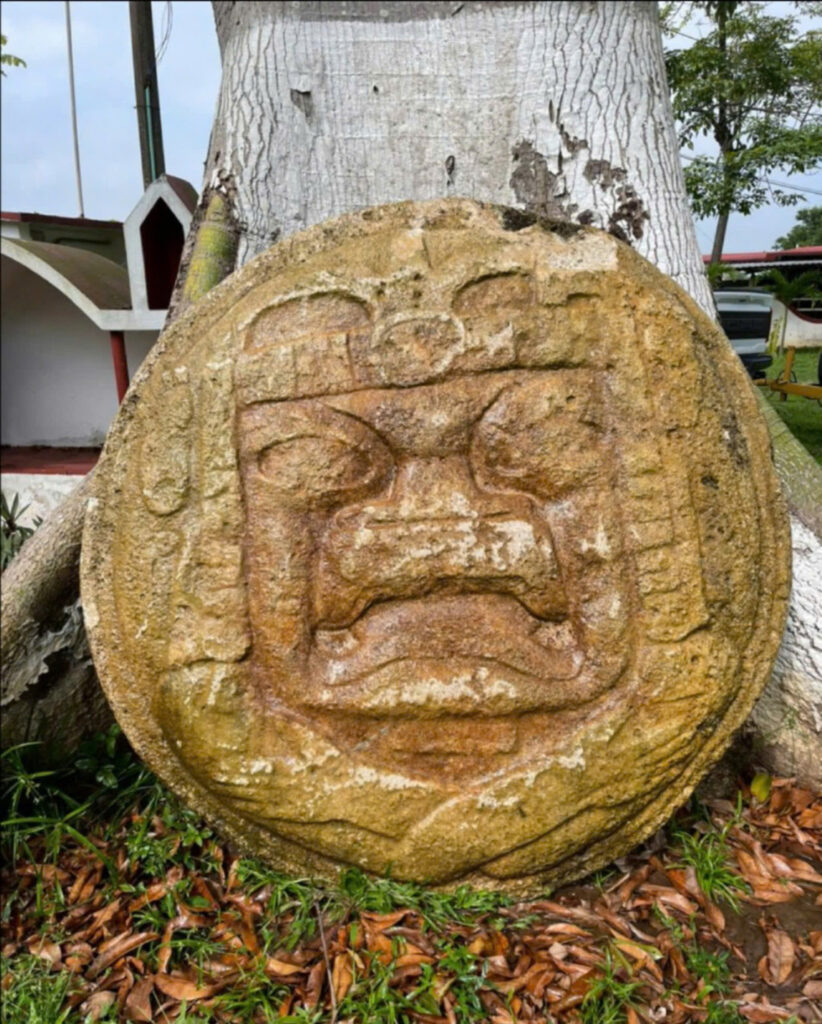
The limestone reliefs, dating back to 900-400 BCE, depict local rulers with distinctive features:
- Grumpy expressions and square-shaped faces
- “Celestial” jaws with open mouths resembling jaguar roars
- Diadems made of four corncobs
- Mirrors with the “Olmec cross” at their center
- Footprints and jaguar glyphs
These intricate carvings are believed to represent important figures in Olmec society, showcasing the term “ajaw” – a symbol of power and authority.
Ritual Contortions and Celestial Connections
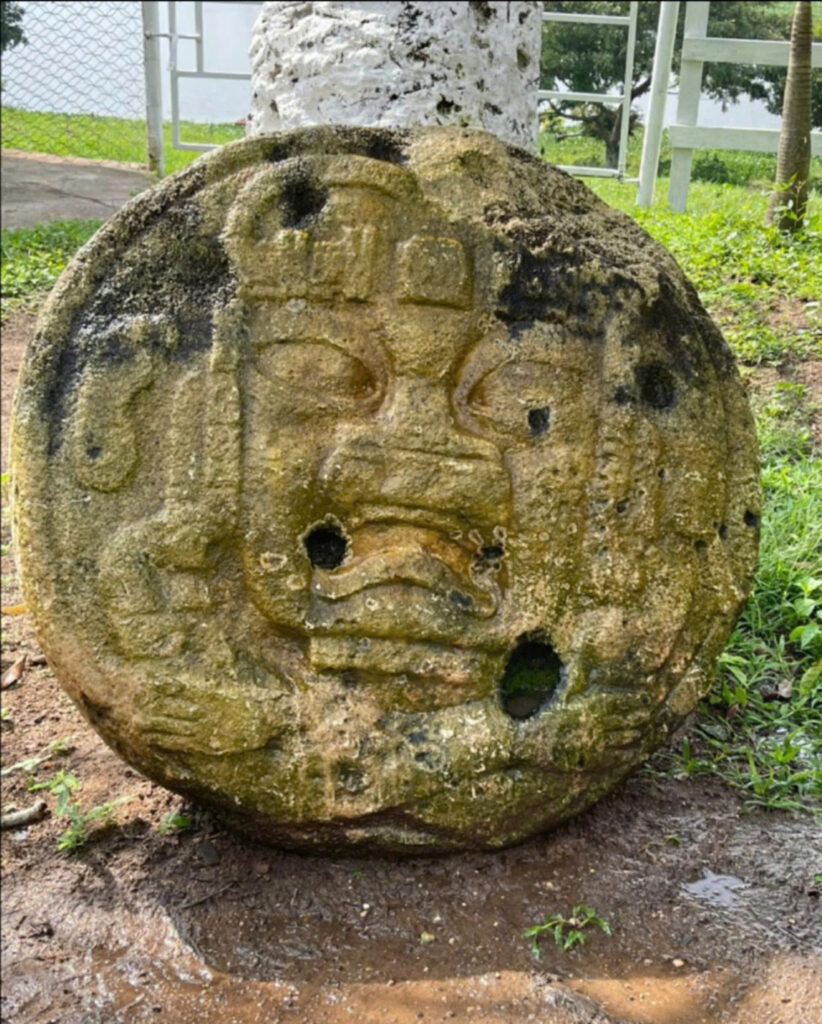
According to Tomás Pérez Suárez, an archaeologist from the National Autonomous University of Mexico, the contorted poses depicted in the reliefs were thought to grant the rulers special powers. This fascinating detail provides insight into the spiritual beliefs and practices of the Olmec civilization.
From Anonymous Tip to Museum Exhibit
The journey of these remarkable artifacts began with an anonymous tip to the National Institute of Archaeology and History (INAH) in 2019. Now, after careful study and preservation, the sculptures are set to be exhibited at the Pomoná Site Museum in Tenosique, allowing visitors to marvel at these windows into ancient Mesoamerican culture.
A Testament to Olmec Legacy
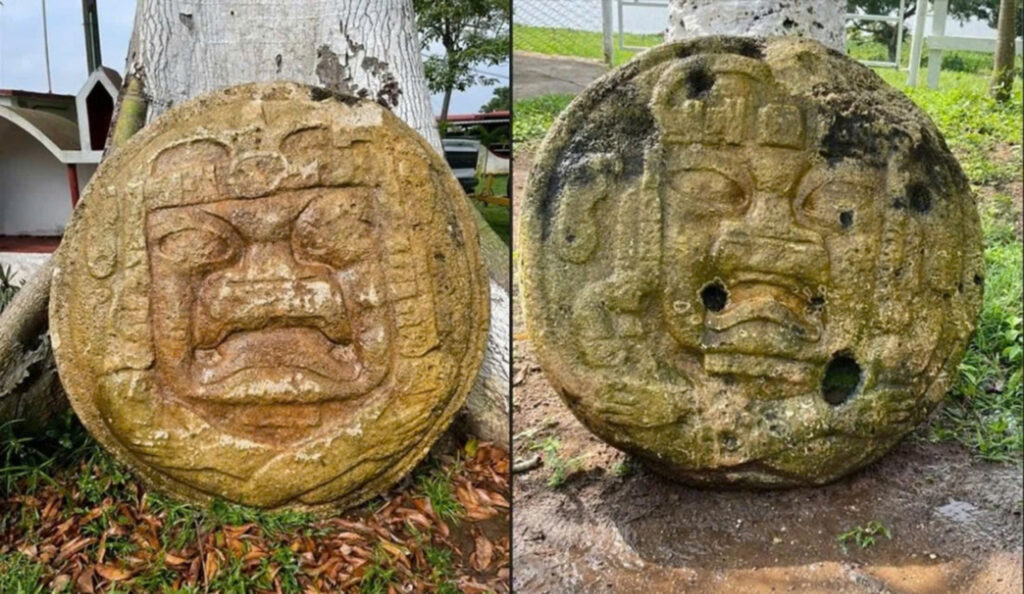
As the earliest known major civilization in Mexico, the Olmec people left an indelible mark on Mesoamerican history. These newly discovered reliefs, originating from the Middle Usumacinta region, add another fascinating chapter to our understanding of this influential culture that flourished from 1200 BCE to 400 BCE.
This extraordinary find not only enriches our knowledge of Olmec artistry and beliefs but also highlights the ongoing importance of archaeological research in uncovering the secrets of our shared human history.
